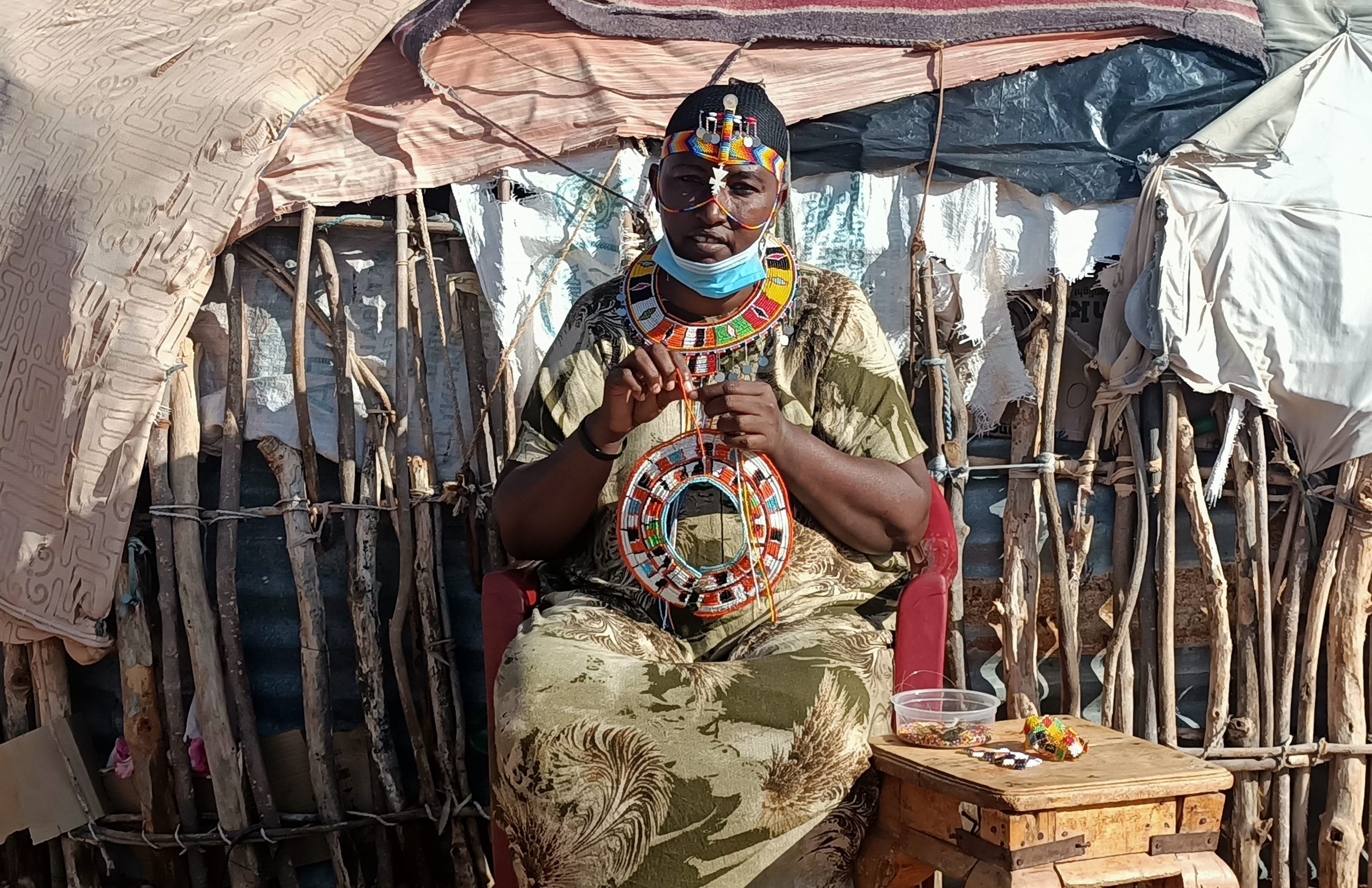
Halima Mohamed Arbele, 45, never expected that her hobby could be a source of income for her family. Since 2005 Halima has been making beaded wrist bands, belts, necklaces, and headgear for her community members. Her designs became popular but she was not charging for them.
Meanwhile, she struggled to feed her husband, nine children, three of which require educational support, and two other dependents. Halima and her family are pastoralists and keep cattle, goats, and sheep. Once in a while, they could spare a goat or sheep to sell for the family’s upkeep, but without a stable means of income, they struggled financially. The family needed a sustainable source of livelihood.
Halima and her family live in Korr village in the Laisamis ward in Marasbit County, a region in Northern Kenya. According to the national 2019 Census Report, Marsabit has a population of 447,150 and 92 percent of the population lives below the poverty line.
In 2021, the Feed the Future Kenya Livestock Market Systems (LMS) Activity in collaboration with the national and county government and Boma Project launched an Ushanga (bead making) initiative in the Laisamis and Loiyangalani wards. 200 women participated in the training and learned to make highly valuable beaded products marketable to both domestic and international tourists. Halima attended the training following an announcement in the Kurkud Women’s Group, which she belongs to.
Rebecca Erot, chair of the Eykodiwakh Cooperative, where many participants of the Kurkud Women’s Group are members, helps her members market their products within Marsabit and the neighboring Isiolo County. The cooperative is also in contact with an international enterprise that buys their products wholesale to sell in Europe.
“The training opened our eyes. We have learned new bead designs and marketing of our products. We now know that there is demand for products both locally and internationally. As a cooperative, we plan to use social media platforms like Facebook to reach out to our customers.”
-Rebecca Erot
Since participating in the training, Halima sells her products in Korr town and makes approximately $100 per month during the high season and an average of $50 per month during the low season. She uses her income not only to pay for meals and medical expenses but also to fund the expansion of a utility shop that she started from her bead making profits. These business ventures have supplemented her income and over-reliance on her husband.
LMS also trained the Kurkud Women’s Group on entrepreneurship and awarded them an in-kind grant of $3,500 to open a butchery. The adoption of solar system technologies saved the venture from exorbitant electricity costs. The cooling facility is helping the Women’s Group supply quality fresh meat to local consumers. With the outbreak of COVID-19 and concerns over food safety, the group also received food standards and quality training from LMS to boost their operations for their ever-growing customer base.
Learn more about the Feed the Future Kenya Livestock Market Systems Activity.








